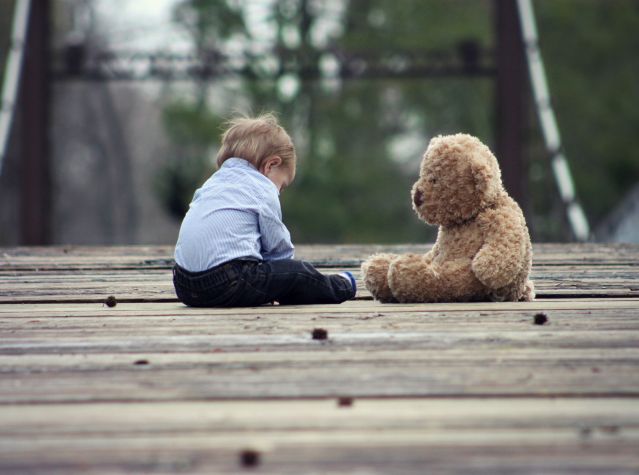Depression
Why People Don’t Take Your Depression Seriously
Understand why they don’t understand your depression.
Posted August 21, 2023 Reviewed by Michelle Quirk
Key points
- Depression is an invisible condition, which makes it difficult for people to understand.
- Talk about your depression consistently if you want it to be better understood.
- Listen to the problems of the people that you want to listen to you.

Talking about your depression is extremely difficult. Sometimes, even when you’ve finally built up the courage to talk about it, nothing changes. It’s easy to assume that people don’t care about you or they don’t believe you when opening up to them doesn’t change anything, but it’s likely more complicated than that. I’ll explain some of the reasons the people you care about don’t take your depression as seriously as you want them to.
1. They Forget
One of the reasons your friends and family members aren’t treating your depression with the respect it deserves is that…they forget. I know your depression is obvious to you and impacts how you live most of your life, but for the people around you, it’s an invisible piece of information. In their eyes, you’re doing the things you’ve normally done and talking the way you’ve always talked, so it’s very easy to forget that internally you feel like you’re drowning.
I write about depression and train therapists on how to treat depression, and I'm even guilty of forgetting when someone close to me is depressed. Sometimes I forget that my friends are feeling depressed when they take a long time to answer my texts. I forget that my cousin might be feeling depressed when I’m surprised at how she’s reacting to a situation. While I was in the middle of writing a post about how to be more understanding about depression, I got angry at my wife for how she responded to something I asked, even though she had just told me that morning that she was feeling depressed!
I promise I’m not that forgetful of a person, but everyone forgets sometimes. People tend to forget information that hasn’t had a chance to solidify.1 This is why you might remember an old friend’s childhood address but can’t remember where they work right now. Information that hasn’t had time to root in your mind will be easier to forget. The people close to you remember your hobbies, the funny memories you’ve had together, and definitely the way you make them feel. But as important as your depression is to you, it’s likely a very tiny detail for other people unless you consistently remind them.
2. You Aren't Listening
Now, some of you are in the exact opposite situation and you make your depression known, potentially talking about it too much, but you still aren’t being taken as seriously as you’d like. Part of the reason they aren’t paying attention the way you want them to is because you aren’t listening to them.
People listen more when they are listened to. That’s the essence of therapy, but it’s true for any conversation. When you open up about your depression symptoms, do not expect people to roll out the red carpet for you and give your pain all the spotlight, unless they’ve been prompted ahead of time. Because you aren’t explaining your problems to a blank slate, WebMD, or an AI bot; you’re talking to a person with their own frustrations with life and their own pain. Just because they aren’t depressed doesn’t mean they aren’t experiencing something that might be distracting them from understanding your depression. They could be dealing with a relationship ending, problems at work, or any of the thousands of diseases that exist.
I know this might not seem fair, especially because depression can lead to excruciating pain. If one person is in significantly more pain than the other, then, yes, it’s appropriate that the more injured person deserves more time and attention. If one person has a paper cut and their friend has a venomous snake bite, the bite deserves care first. However, psychological pain is much harder to quantify and compare. Comparing depression with other problems in life is like comparing who is in more pain, a woman in labor or someone who is dying of cancer?
When you’re in pain, your focus narrows toward the cause of the pain. If you break your arm, you aren’t thinking about what’s for dinner; you’re thinking about your arm! Questions are spiraling in your mind: How bad is it? What if it gets worse? How do I fix this?! Those thoughts can take away from your ability to hear someone else’s pain. That’s true for you and your depression, and it’s true for everyone else and their problems, too.
If your depression is less severe, your friends and family will probably make recommendations for what could help, like exercising more or thinking about things differently. Even if you don’t think those suggestions are helpful, you have to at least engage in a serious conversation about why those ideas may or may not work. Because if you aren’t taking their thoughts seriously, why should they listen to yours?
If your depression is more severe, what’s getting in the way of a helpful conversation may be less obvious. It’s that you’re not thinking to the fullest extent about the pain that your depression is causing in the relationship. You don’t know what it’s like to try to be close to you when you’re depressed. You don’t know what it’s like to ask if you’re OK and have you lie to your face. You don’t know what it’s like not knowing how to help you but desperately wanting to do more. It’s not your fault, just like it isn’t other people’s fault when they don’t understand you. As the Buddhists say, life is suffering, so no matter what the situation is, when two people are talking to each other, they’re both in pain and both trying to find a way out.
This is a post with tips on how to be a better listener when someone talks about their depression. You can share that article with other people, but you might also want to read those tips yourself to make sure you’re listening carefully when other people talk about their struggles.
It’s easy to be discouraged after you open up about your depression and nothing changes in your relationships. But now you know some of the reasons you aren’t being understood. It may feel counterintuitive to open up more than you already have or to remind people about your depression, but just like “the sex talk” shouldn’t be a one-and-done conversation, neither should opening up about your depression. The more you explain, the better the two of you can figure out how to improve your depression together. And if you’re hitting a wall in your communication with someone, then take a step back to see if you’re listening enough to what they have to say, both about their suggestions and their own struggles. Take the time to hear them out, at least as much as you want them to listen to you.
References
1. Wixted, J. T. (2005). A theory about why we forget what we once knew. Current Directions in Psychological Science, 14(1), 6–9.




